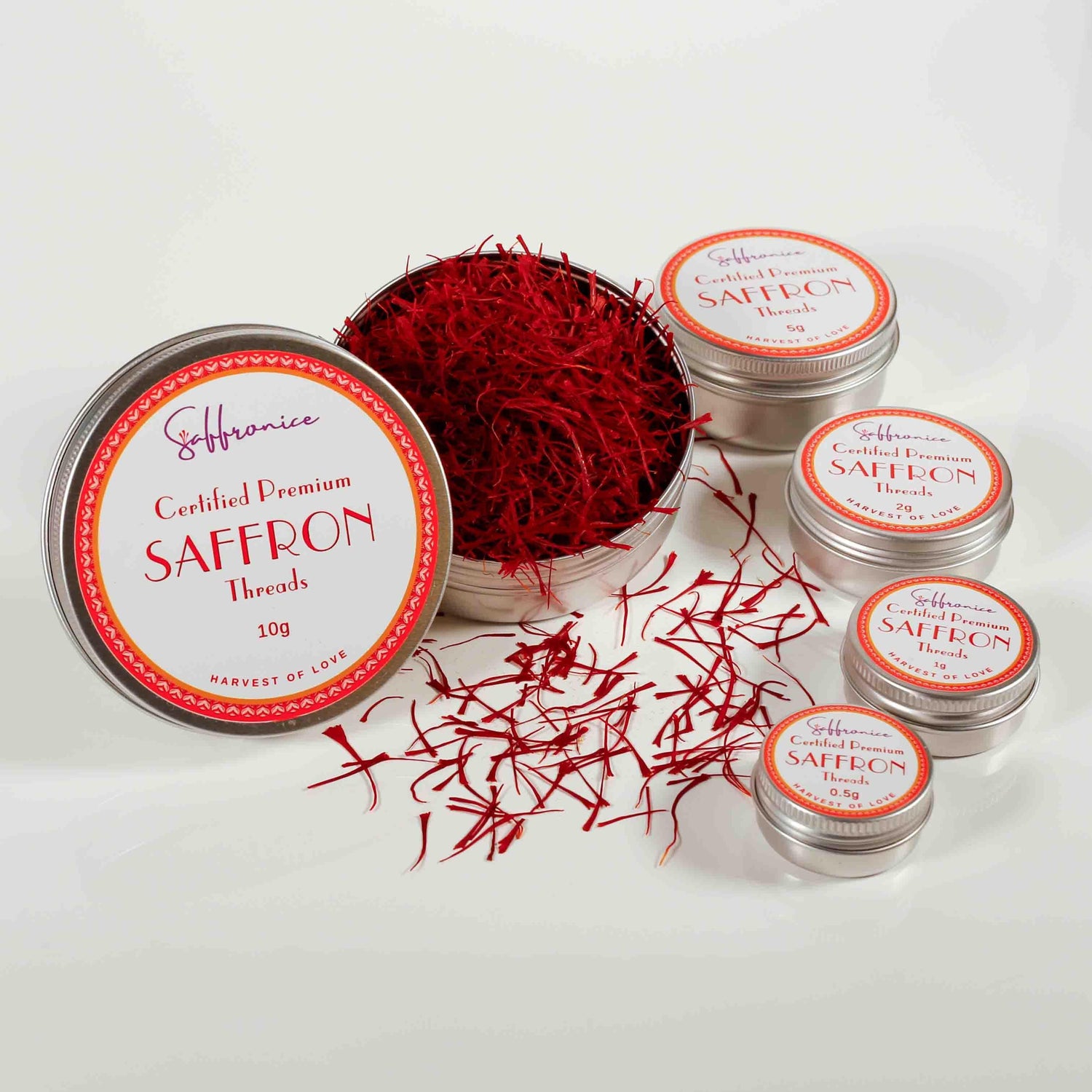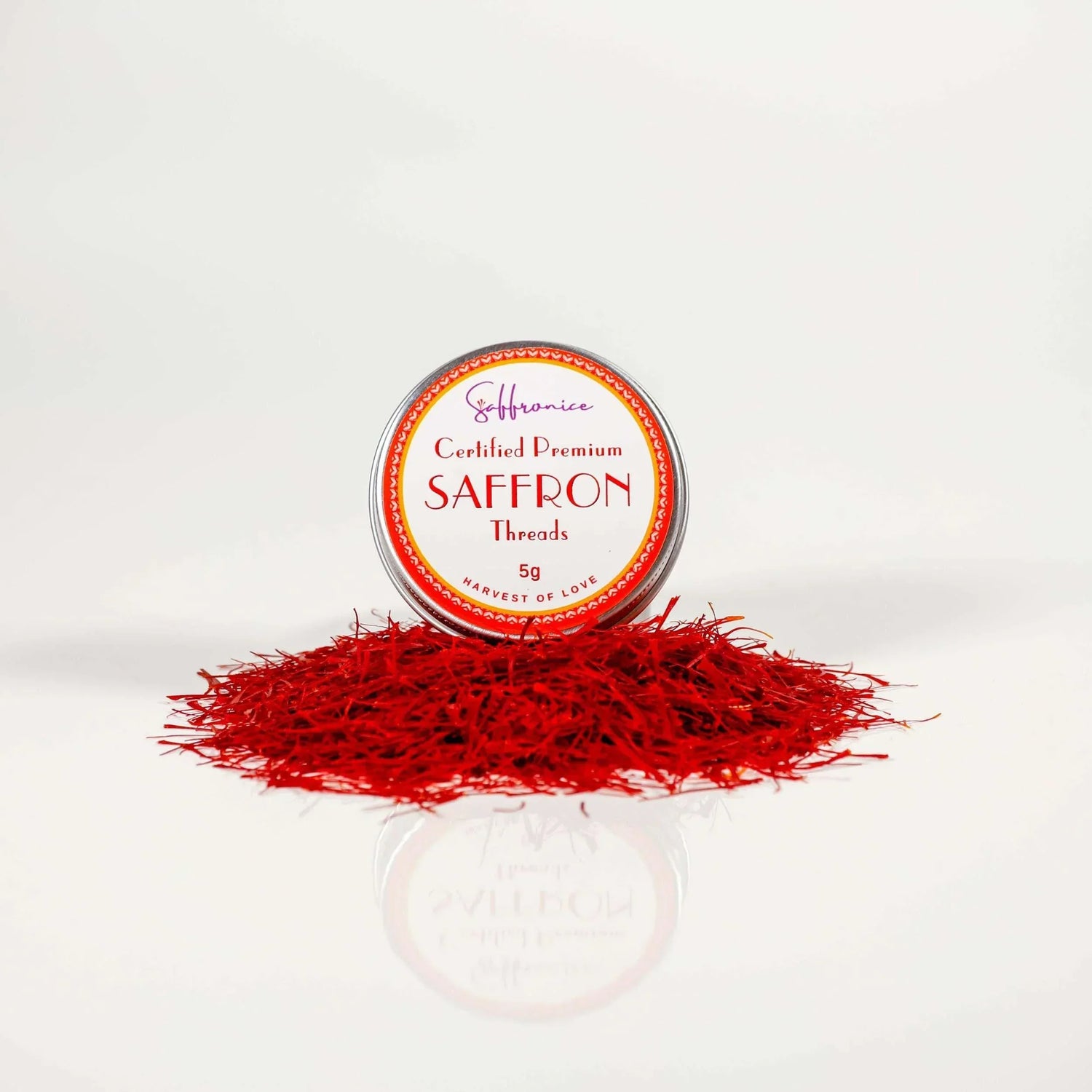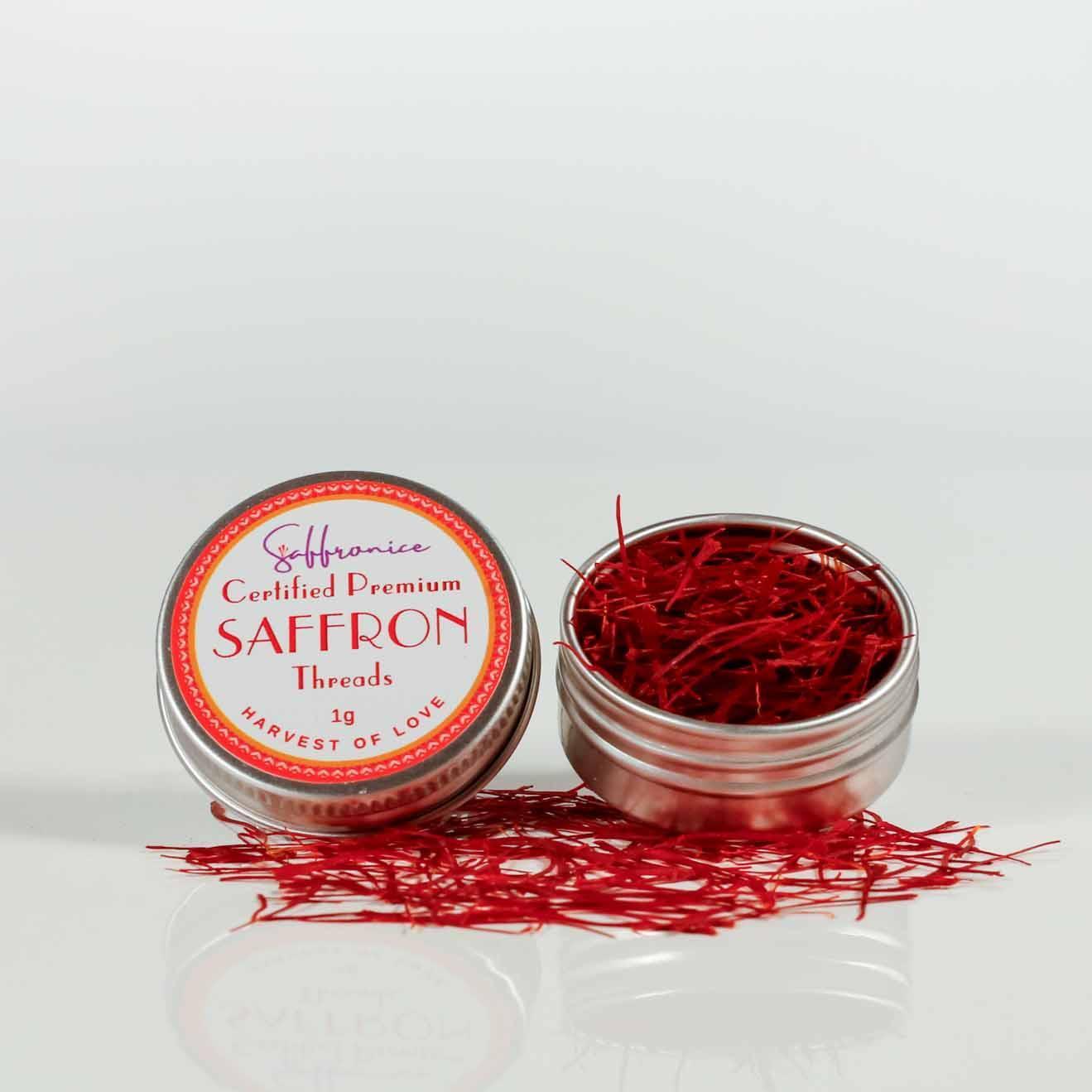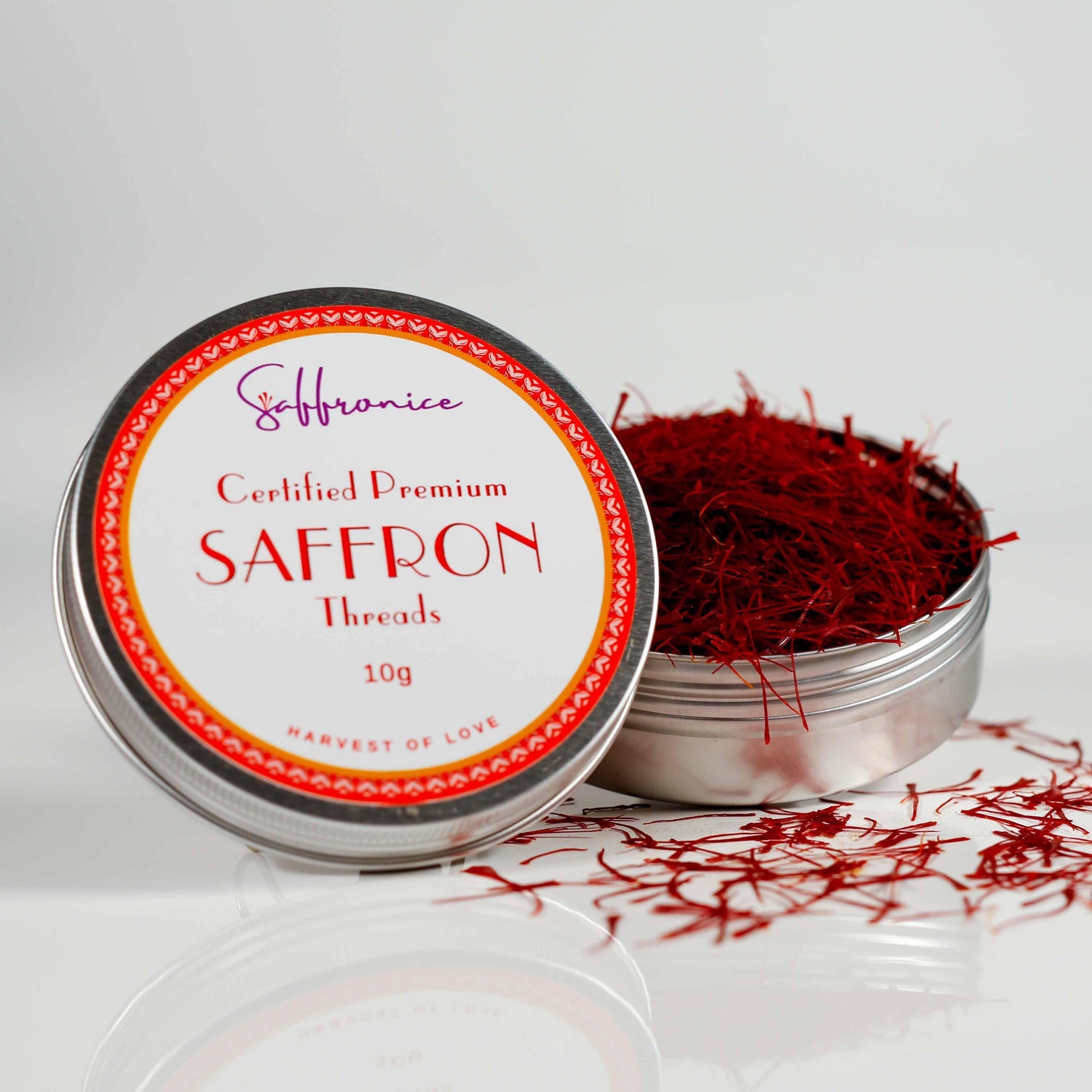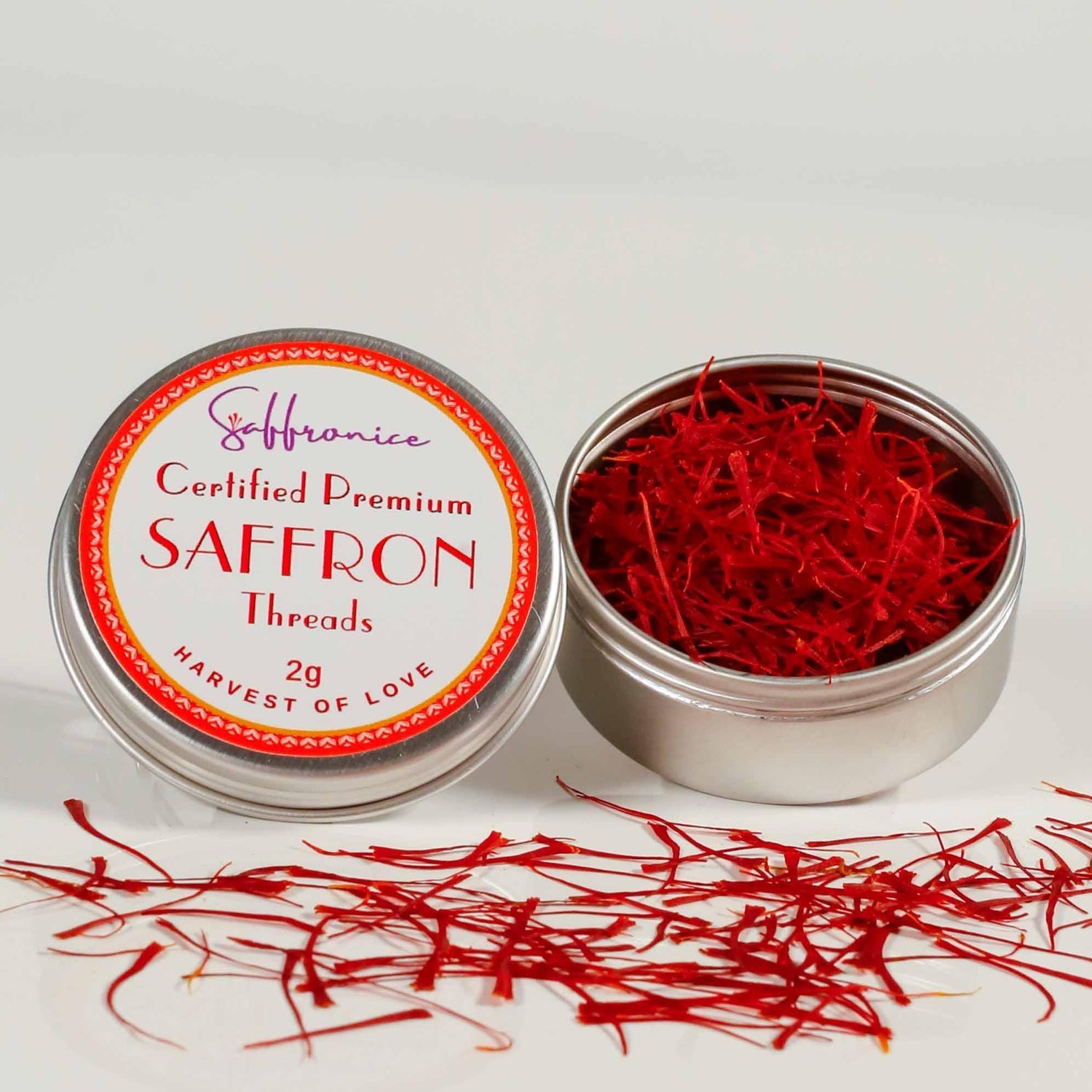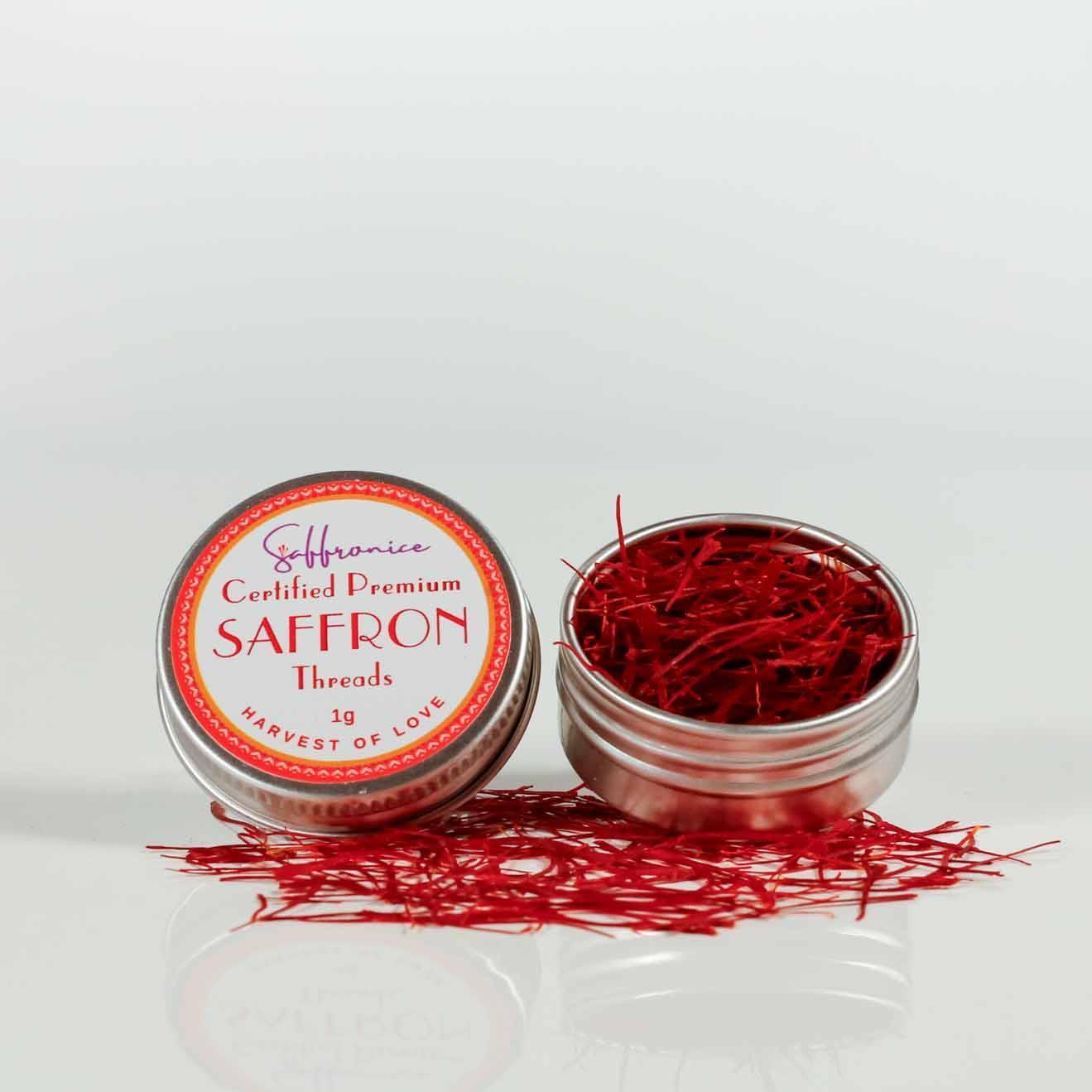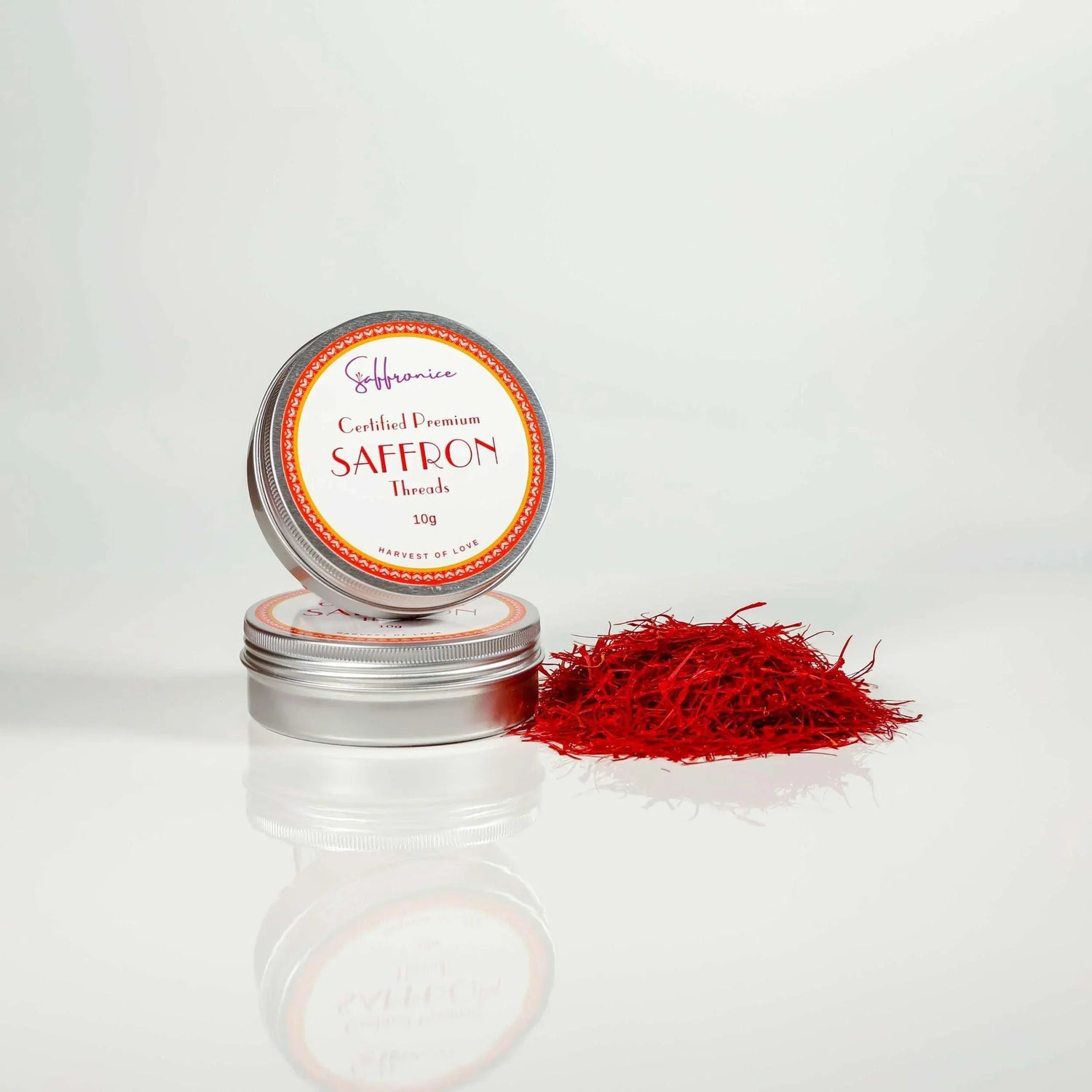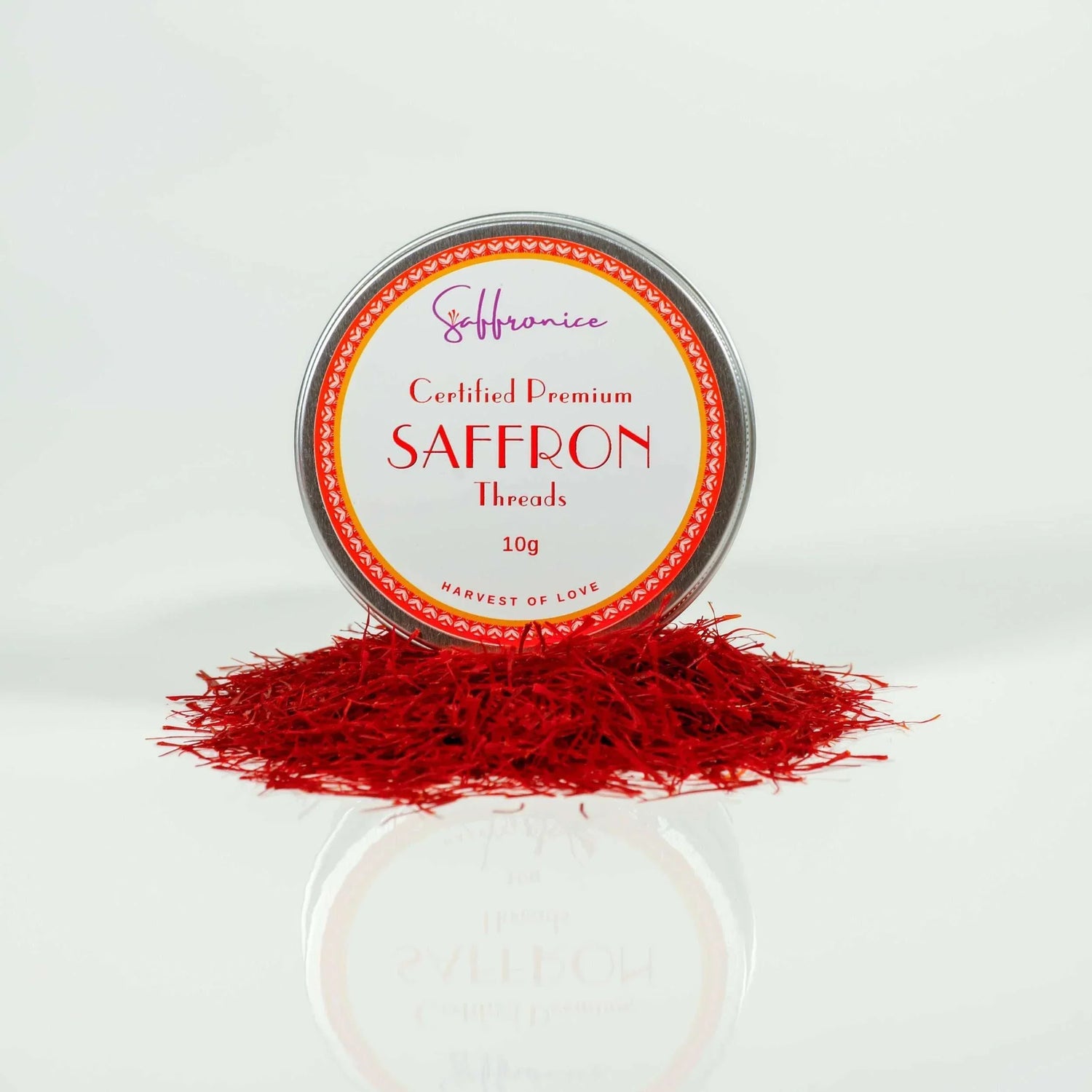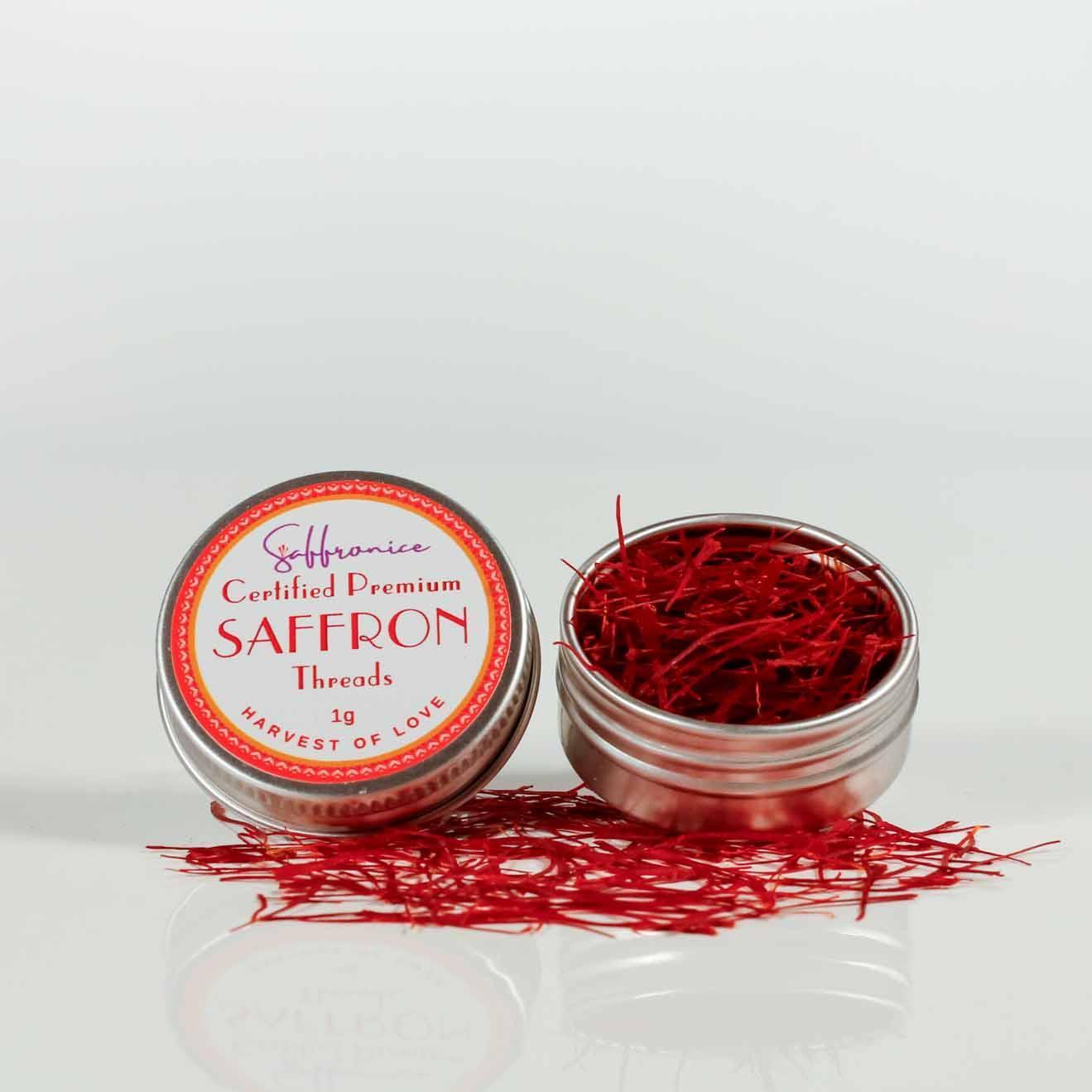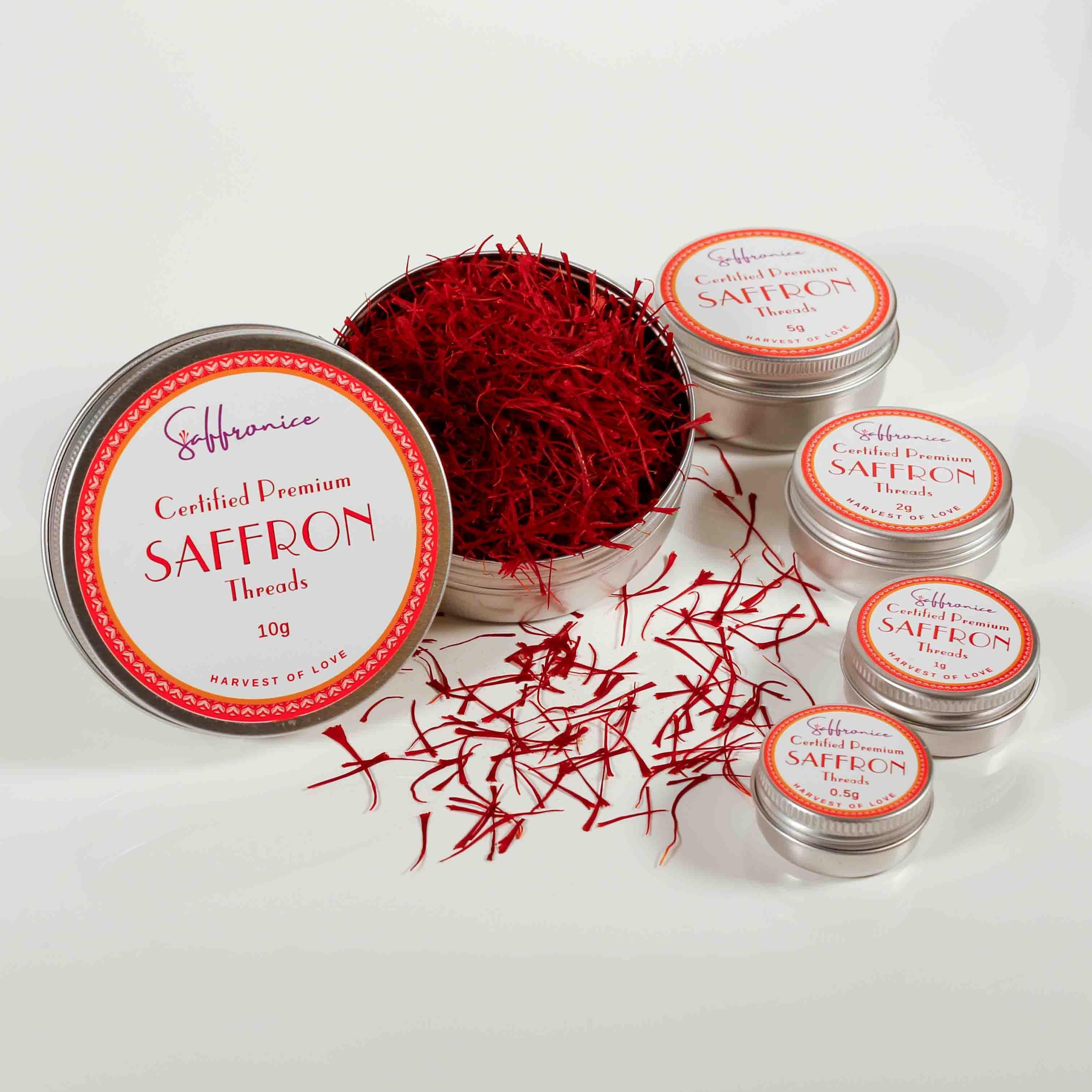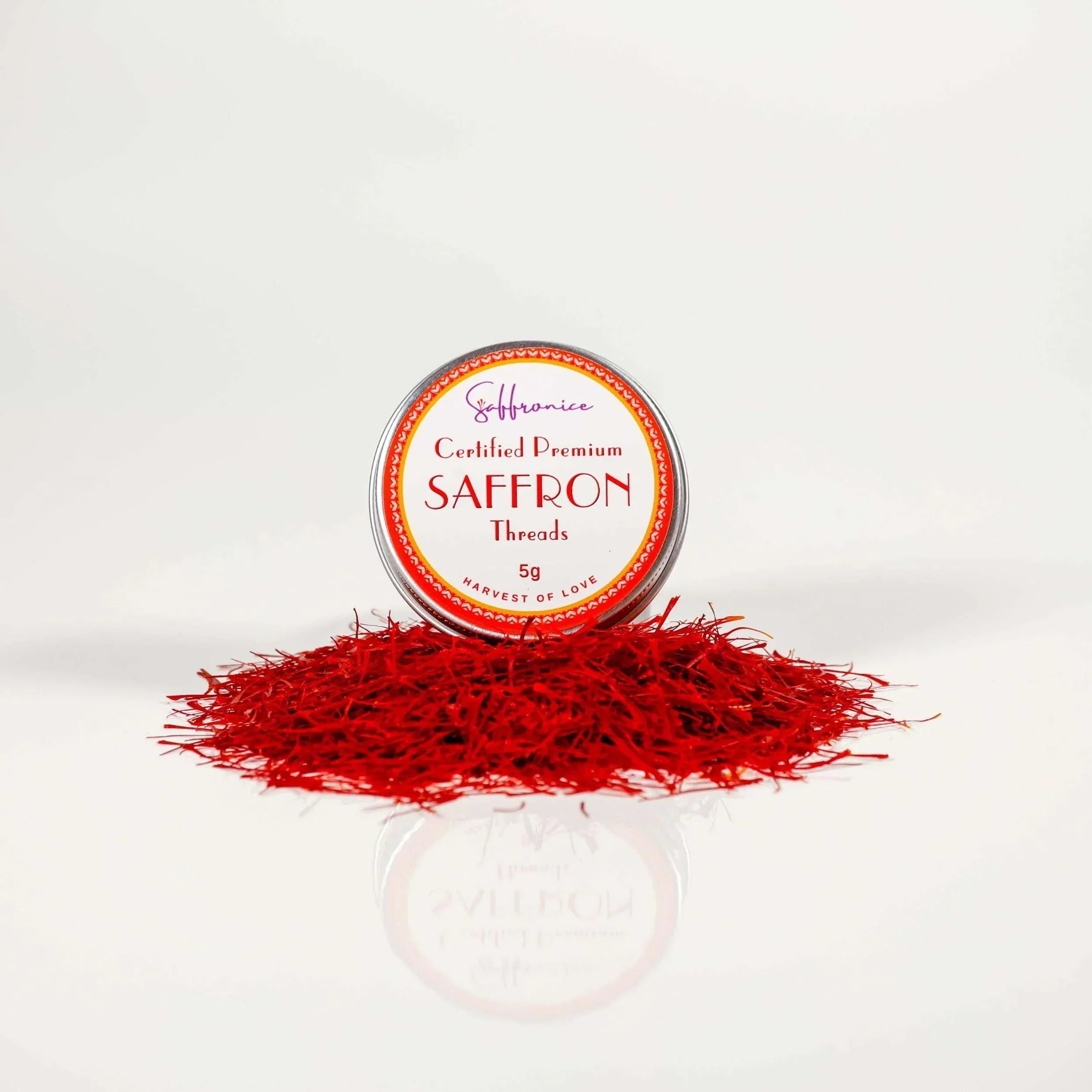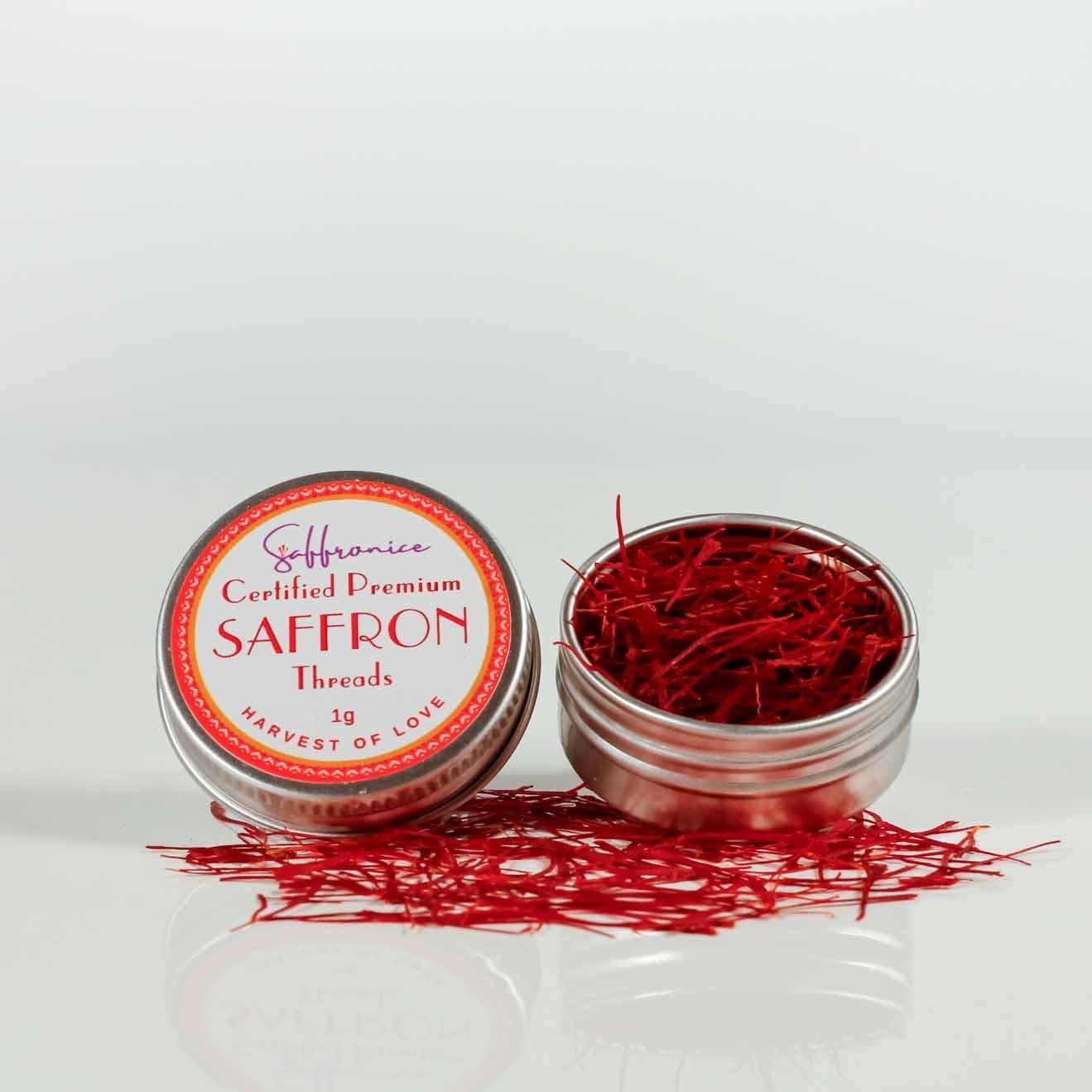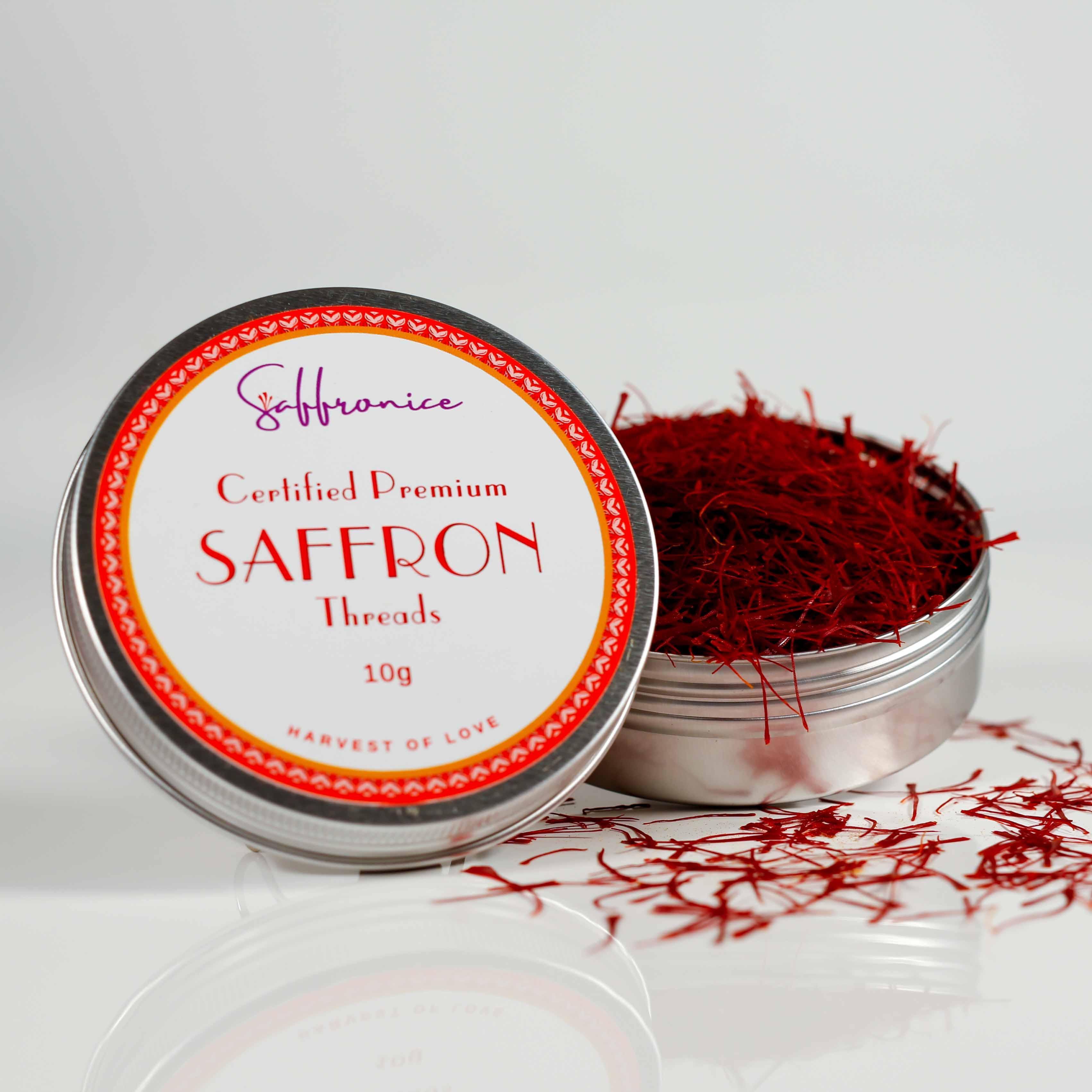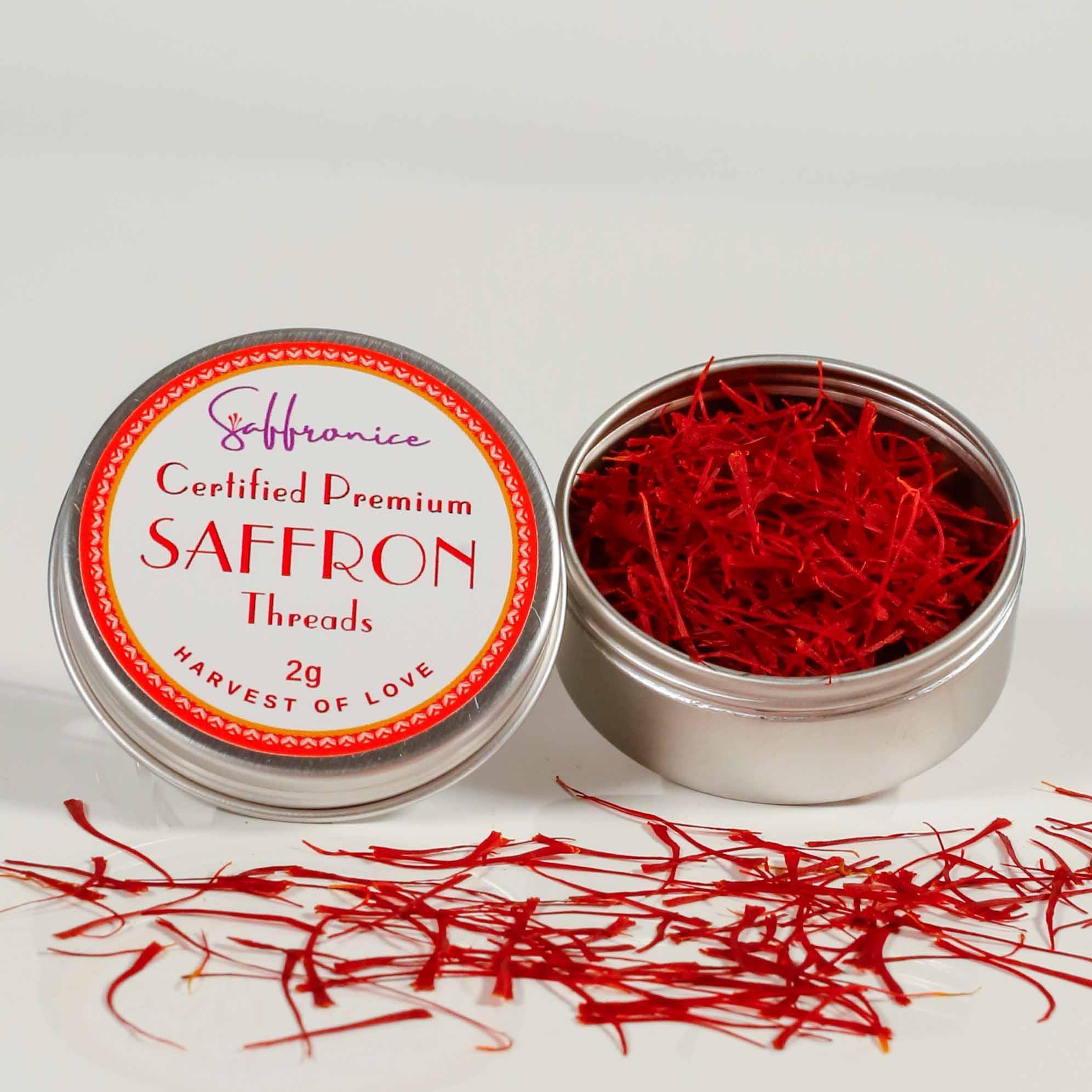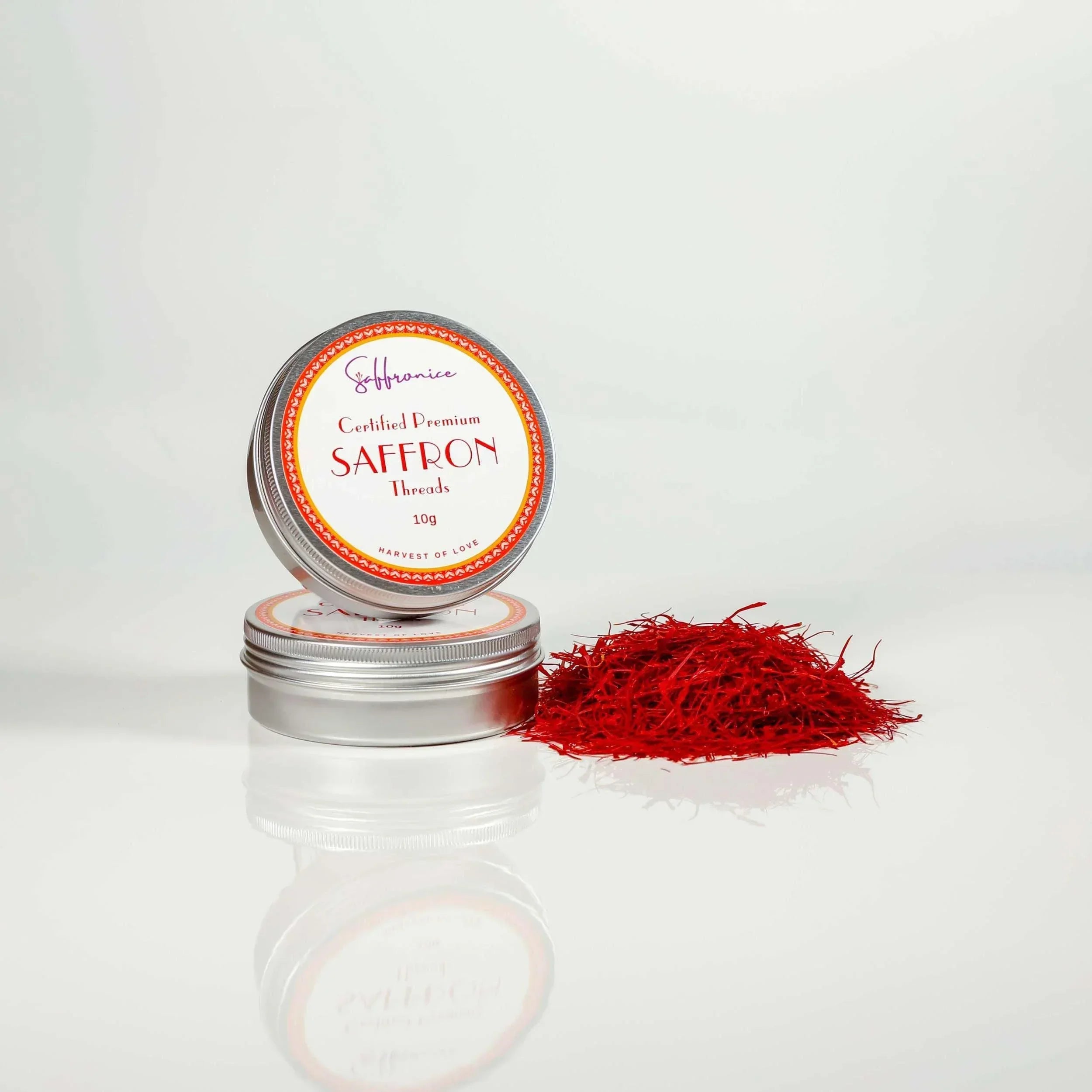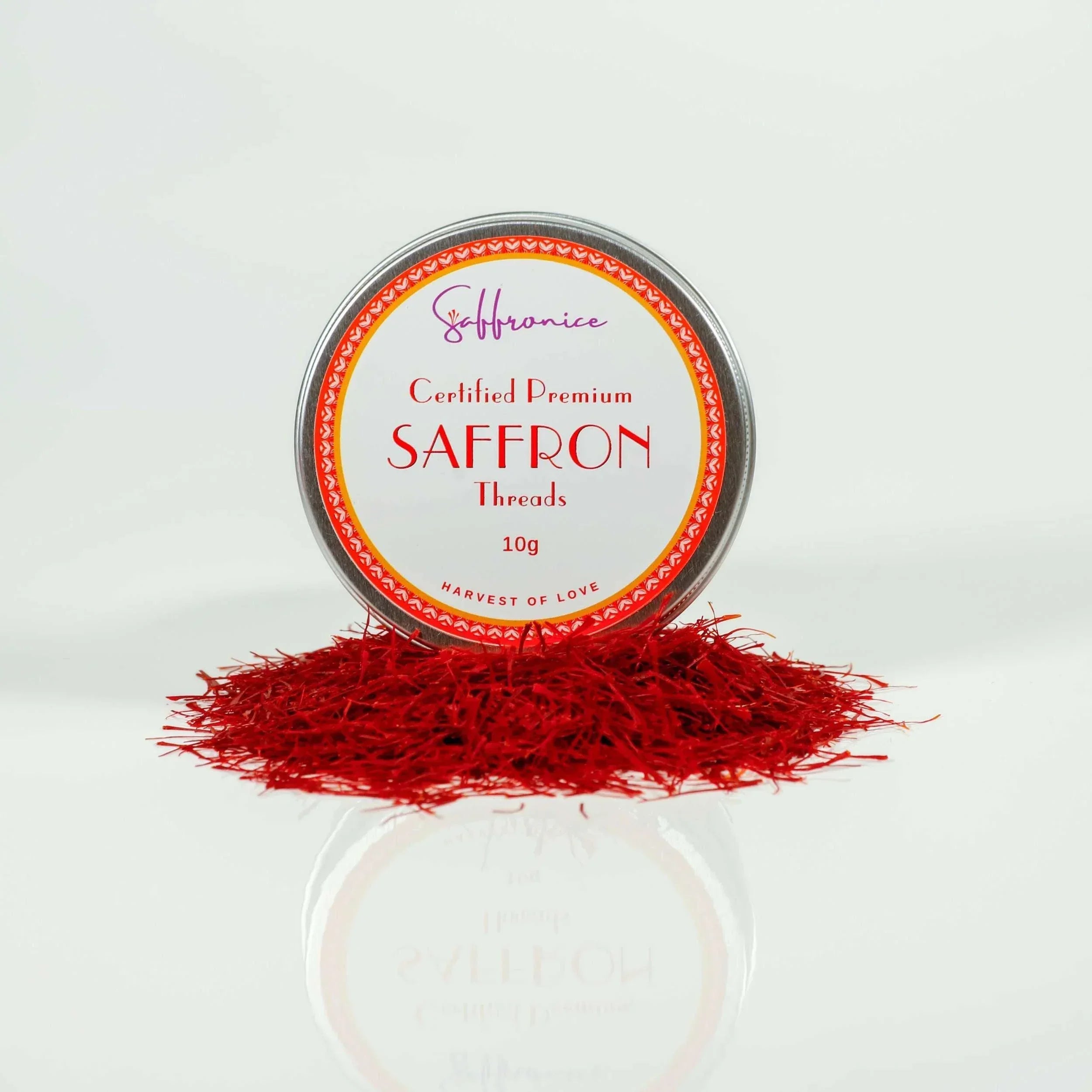Saffron is a rare and luxurious spice often referred to as the golden spice. It is highly valued not only for its vivid colour and unique flavour, but also for its wide range of health benefits.
A Spice with a Rich History
Saffron has a long history, dating back to ancient times when it was used in various cultures across the globe. Its journey began in Persia (modern-day Iran) and India, where it was cherished for its culinary and medicinal properties. Over time, saffron made its way to other regions such as Spain, where it became an integral part of their cuisine.
The significance of saffron goes beyond just being an ingredient in cooking. It has also played a role in traditional medicine, religious ceremonies, and cultural practices throughout history. Whether it's being used to flavour a fragrant rice dish or offered as a sacred gift, saffron has always held a special place in different societies.

The Modern-Day Importance of Saffron
In today's world, understanding the health benefits of saffron is more important than ever. This spice has been found to have potential mood-boosting effects, making it beneficial for those dealing with stress or anxiety. Additionally, saffron may also support female health by alleviating symptoms associated with menstruation or menopause.
But the advantages of saffron don't stop there. Recent studies suggest that this golden spice can also promote skin health, helping to combat issues like acne or hyperpigmentation. As we explore further into the wonders of saffron, we discover how it can uplift our spirits, enhance our diets, and even strengthen our overall well-being.
Join us on this aromatic journey as we uncover the many secrets hidden within each thread of saffron!
What is Saffron?
Saffron, scientifically known as Crocus sativus, is a spice derived from the saffron crocus flower. This beautiful flower, with its purple petals and vibrant red stigma threads, is the source of saffron. What makes saffron so special is that each flower only produces three stigmas, which are carefully harvested by hand.
The Harvesting Process
The process of harvesting saffron is both labour-intensive and time-consuming. Here's how it works:
- Timing is Key: Saffron flowers bloom for a short period, usually in autumn. To ensure the highest quality saffron, harvesters must be vigilant and pick the flowers at just the right moment.
- Hand-Picking: Once the flowers are in full bloom, skilled harvesters go out into the fields and carefully pluck the flowers by hand. This delicate task requires precision and expertise to avoid damaging the fragile stigmas.
- Stigma Separation: After the flowers are harvested, the next step is to separate the stigmas from the flowers. This is done by gently removing the red threads from each flower, again requiring a steady hand and keen eye.
- Drying: The final stage involves drying the collected stigmas to preserve their flavour and aroma. This is typically done in a controlled environment to prevent any loss of quality.

The Global Journey of Saffron
Saffron's journey doesn't end with harvesting and drying. It has travelled across continents and cultures, becoming an integral part of various cuisines around the world.
Major Producers of Saffron
Here are some countries known for their saffron production:
- Iran
- Spain
- India
These countries have mastered the art of growing saffron, each adding its own distinct touch to its cultivation and harvest methods.
The Allure of Saffron
What makes saffron truly captivating is not just its taste but also the intricate process that goes into bringing it from farm to table. It embodies centuries of knowledge passed down through generations—a testament to human dedication and craftsmanship.
Whether used in cooking or as an ingredient in perfumes or cosmetics, saffron continues to mesmerise people with its unique qualities. Its vibrant colour adds warmth to dishes while imparting a subtle yet complex flavour profile that elevates any culinary creation.
In essence, saffron represents more than just a spice; it symbolises passion for food—the relentless pursuit of perfection that drives chefs around the globe to seek out this extraordinary ingredient.

Nutritional Components of Saffron
Saffron, often celebrated as the "golden spice," is more than just a culinary delight. It's packed with a range of nutritional compounds that contribute to its health-boosting reputation. Among these are antioxidants, which play a crucial role in protecting the body from oxidative stress and free radicals.
Here's a closer look at some of saffron's key components:
- Crocin: This compound is responsible for saffron's vibrant colour and offers powerful antioxidant properties. It has been linked to improved mood and even potential anti-cancer effects.
- Crocetin: Known for its anti-inflammatory properties, crocetin helps improve blood flow and may contribute to cardiovascular health.
- Safranal: This component gives saffron its distinctive aroma. It has shown promise in enhancing mood and reducing anxiety, potentially acting as a natural antidepressant.
- Picrocrocin: Responsible for saffron's unique taste, picrocrocin also exhibits antioxidant abilities, supporting overall health.
These compounds make saffron not just a spice but a potent ally in maintaining well-being.
Health Benefits of Saffron
Saffron, often referred to as "kesar" in South Asia, is more than just a culinary delight; it’s a powerhouse of health benefits. Its vibrant red threads pack not only colour and flavour but also a plethora of advantages that extend beyond the kitchen. Let's delve into the health benefits of saffron and explore how this golden spice can enhance your well-being.
Mood Enhancement and Mental Health
Feeling blue? Saffron might just be the golden ticket to boosting your mood. Studies have shown that saffron's compounds, particularly safranal, have mood-lifting properties. These findings suggest that saffron could be as effective as certain conventional medications for treating mild to moderate depression. Imagine adding a natural cheerleader to your diet! Research supports the idea that incorporating saffron can lead to significant improvements in mood and symptoms associated with anxiety.
PMS Relief and Female Health
Ladies, rejoice! Saffron offers promising benefits for female health, especially during those dreaded premenstrual days. Research indicates that saffron can alleviate PMS symptoms such as irritability, fatigue, and cravings. Beyond PMS relief, there are potential benefits to broader aspects of women’s health thanks to its anti-inflammatory properties. This makes saffron an attractive option for females seeking natural remedies.
Cardiovascular Health
Your heart will thank you for sprinkling a bit of saffron into your life. The spice contains antioxidants like crocin and crocetin which help reduce cholesterol levels and prevent artery clogging. Studies highlight how these compounds contribute to improved cardiovascular health by keeping blood vessels flexible and reducing inflammation. By integrating saffron into your diet, you could support better heart health naturally.
Cognitive Function Support
As we age, preserving cognitive function becomes crucial. Saffron has shown promise in supporting brain health through its antioxidant-rich profile. It may play a role in preventing or managing Alzheimer’s disease by inhibiting the build-up of amyloid plaques in the brain—common culprits in Alzheimer’s progression. Saffron offers a delicious way to give your brain a little extra love!
Eye Health Benefits
Looking after our eyes is essential, and saffron might just offer an eye-opening solution! Research indicates that saffron can positively impact eye health conditions like AMD (age-related macular degeneration). The antioxidants present in saffron protect retinal cells from damage due to oxidative stress, providing a protective shield for vision longevity.
This exquisite spice is not only an aromatic addition to dishes but also a potent ally for health enhancement across various domains. Whether you're aiming for better mental clarity or cardiovascular wellness, consider making saffron part of your daily routine!
For instance, you could start your day with a warm cup of saffron tea, known for its numerous health benefits. Or perhaps try some saffron drink recipes that not only taste great but also enhance your wellness journey further!

Saffron in Culinary Uses
Saffron, known as the jewel of spices, is used in many traditional dishes to add its vibrant colour and distinct flavour. It is particularly loved in the culinary world for its use in rice pilaf and indulgent desserts such as saffron-infused custards. To unleash its full potential, saffron threads are best when soaked, allowing them to fully infuse the dish with both hue and fragrance.
Using saffron in cooking is more than just adding a spice—it's an exploration of history and culture. From the aromatic kitchens of Iran to the bold flavours of Spanish paella, saffron holds great cultural significance in different cuisines, enhancing dishes with both heritage and taste.
How to Choose Quality Saffron
Choosing quality saffron can be a bit tricky, but with the right knowledge, you can find exactly what you're looking for. The ISO grading system is here to help you understand the different grades of saffron available. It ranges from the top-grade Negin (Grade 1) to the lower-grade Style (Grade 5). Each grade has its own characteristics, with Negin having higher levels of saffron's valuable compounds.
When it comes to finding the best saffron, Iranian saffron is the way to go. It is highly regarded for its deep red threads and powerful aroma, making it the benchmark for saffron extract benefits. If you're interested in discovering the benefits of drinking saffron tea, make sure to choose authentic Iranian threads for guaranteed quality and taste.
Safety and Precautions
When it comes to saffron, understanding dosage safety is crucial. In culinary uses, a pinch of this golden spice—approximately 0.5 to 1 gram—is typically sufficient for adding flavour and colour. However, consuming high doses, more than 5 grams daily, may lead to potential side effects such as dizziness or nausea.
Pregnant individuals should exercise caution. While saffron can offer health benefits, excessive intake might stimulate uterine contractions. It's recommended that pregnant women limit their consumption and consult a healthcare provider before incorporating saffron into their diet.
Always prioritise quality over quantity; authentic saffron ensures both safety and efficacy in its use.

Incorporating Saffron into Your Diet
Saffron, the golden spice, offers a myriad of health benefits from boosting mood to supporting heart health. Embrace its vibrant hue and rich flavour by weaving it into your culinary repertoire. Try sprinkling saffron threads into:
- Rice Dishes: Infuse pilafs with a luxurious touch.
- Desserts: Elevate sweets with a pinch of this exotic spice.
- Teas: Steep for a soothing and aromatic drink.
Quality is paramount when choosing saffron. Look for deep crimson threads and ensure authenticity. Trustworthy sources guarantee the purity essential to savour both taste and health benefits. Experiment and enjoy the golden goodness!
undefined
What are the health benefits of saffron?
Saffron offers a range of health benefits, including mood enhancement, relief from PMS symptoms, support for cardiovascular health, cognitive function improvement, and eye health protection. Its antioxidant properties also contribute to overall well-being.
How is saffron cultivated and harvested?
Saffron is derived from the flower of Crocus sativus, commonly known as the saffron crocus. The harvesting process is labor-intensive, requiring hand-picking of the delicate stigmas. Major producers include Iran, Spain, and India.
What nutritional components are found in saffron?
Saffron contains key nutritional compounds such as crocin, crocetin, safranal, and picrocrocin. These antioxidants play a significant role in promoting health by combating oxidative stress in the body.
How can I incorporate saffron into my cooking?
Saffron can be used in various culinary applications like rice pilaf and desserts. It is recommended to soak saffron threads before use to enhance flavor and color. This spice holds cultural significance in many cuisines worldwide.
What should I consider when choosing quality saffron?
When selecting saffron, it's important to understand the ISO grading system ranging from Negin to Style. Genuine Iranian saffron is often considered the highest quality. Look for vibrant color and strong aroma when purchasing.
Are there any safety precautions associated with saffron consumption?
While saffron is generally safe when used in culinary amounts, high doses can lead to potential side effects. Pregnant individuals should exercise caution and consult with a healthcare professional regarding its consumption.
Scientific References:



